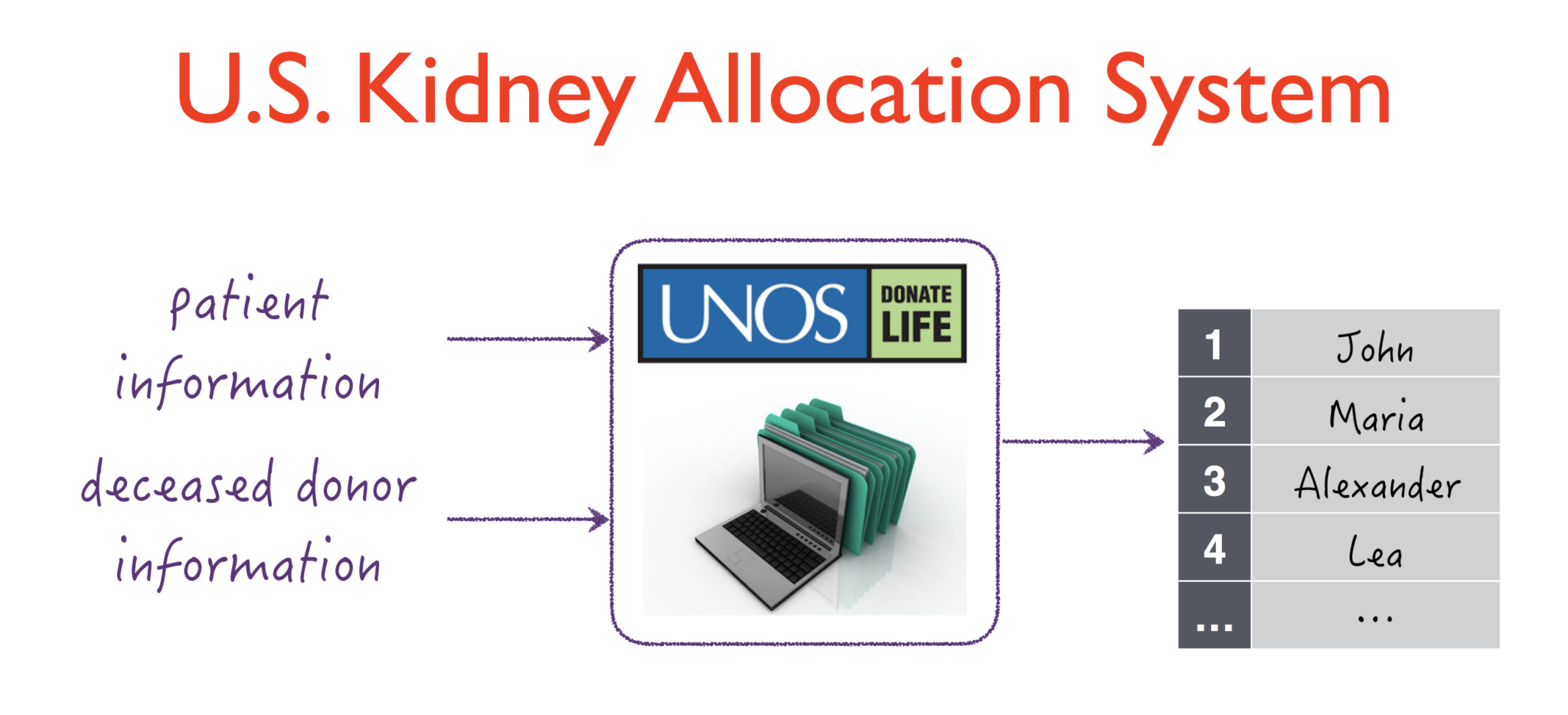Optimization and data analytics for kidney transplantation management
Chronic kidney disease is very prevalent in the U.S., though most do not know they have it. In fact, it is estimated that one-third of American adults are at risk for chronic kidney disease, and about 100,000 Americans are currently waiting for a kidney transplant. Candidate recipients in resource allocation systems, such as the U.S. Kidney Allocation System, often face long, variable, and uncertain wait times until offered their preferred resources. Moreover, to date, they only have access to crude estimates about wait times that do not account for their individual characteristics and preferences. By observing little information about the wait list status, candidates rely on intuition and a complex series of “what if” calculations to understand what the future might hold. At the same time, accurate wait time estimates are crucial, for example for patients seeking kidney transplantation when they face disease management dilemmas, such as whether to accept or decline a particular offered kidney of marginal quality.
Goals
To enable kidney transplant centers to provide personalized wait time estimates to their patients that can help inform their disease management decisions.

Methods
In this project, we at USC CAIS develop novel data-driven optimization methodologies that produce accurate, personalized wait time estimates for individual transplant candidates. We calibrate our model using highly detailed historical data from the U.S. Kidney Allocation System and illustrate how it can be used to inform patients seeking kidney transplantation about their wait time, and in turn support medical decision making and improve their welfare.

We are interested in working with transplant surgeons to improve the chances of survival of patients awaiting for a kidney transplant.
Contact us about being a sponsor for this project
Contact- Viterbi Magazine, Fall 2018, Coping with AI Anxiety
- Viterbi Magazine, Fall 2017, City of Stars
- Kellogg Insight, December 2, 2016, Is There a Better Way to Allocate Organs to Transplant Patients?



